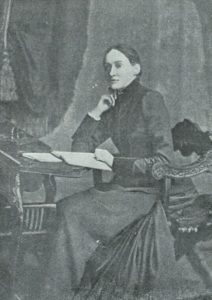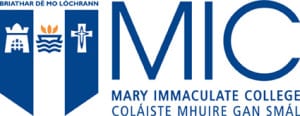IASIL 2019 – ‘The Critical Ground’ and Women’s Literary History
Anna Pilz

Over the course of a week in late July 2019, close to 300 scholars gathered at Trinity College Dublin to celebrate the 50th anniversary of the ‘International Association for the Study of Irish Literatures’. Under the theme of ‘Critical Ground’, delegates and participants reflected on the developments of Irish literary studies over the past fifty years, discussed the latest developments in the field and sketched out ambitions and new directions for the future.
For the purpose of critical self-reflection among the academic community, the five-day conference featured a plenary panel (‘50 Years of the Critical Ground’) and daily roundtables on such themes as ‘Questions for Irish Studies’, ‘Questioning the Canon’ and ‘Displacing the Canon’. Women’s writing and questions of gender emerged as crucial among these discussions. The rich programme included panels dedicated to the discussion of particular writers. Here, we saw the usual suspects discussed in new lights with panels on Jonathan Swift, James Joyce (2x), John Banville (3x), Oscar Wilde, Brian Friel, Richard Murphy, John McGahern, W.B. Yeats (3x), Samuel Beckett (2x), and Seamus Heaney. Panels dedicated to specific female writers were fewer in number and suggest a firm focus on twentieth- and twenty-first century writing with panels on Elizabeth Bowen, Maura Laverty, Anna Burns, Anne Enright, and Marina Carr. For the period 1880 to 1920, it was a pleasure to see a ‘Hannah Lynch’ panel with papers by Kathryn Laing, Faith Binckes, and Jacqueline Hurtley.
This is not to say that women’s writing was marginal to the conference. There were dedicated panels on such topics as ‘Gendered Spaces in Irish Women’s Fiction and Periodicals’, ‘Bodies of Work in Contemporary Irish Women’s Poetry’, ‘Gender, Cultural Criticism and Northern Ireland: New Directions’, ‘Gender and Nation’, ‘Contemporary Poetry: Gender and Praxis’, ‘Reading Irish Women Writers in the #MeToo Era’ and ‘Feminism and Theatre’. And this brief survey does not even account for the many papers on women’s writing peppered throughout panels where lesser-known writers are increasingly gaining visibility, including Somerville & Ross, Emily Lawless, Kate O’Brien, Maeve Brennan, Kathleen Coleman, Freda Laughton and Rhoda Coghill.

In launching Laing and Binckes’ literary biography Hannah Lynch, 1859-1904: Irish writer, cosmopolitan, New Woman (2019), Margaret Kelleher highlighted the individual and collective nature of Irish women’s writing and the way in which the book demonstrates how networks work between women. To what extent might such earlier networks be seen as precursors to our current moment of mutual support where poets, for instance, come together under the banner of “Fired!”? The archival basis for Hannah Lynch furthermore lays bare the transnational and multi-lingual nature of women’s writing in the second half of the nineteenth century, with its attention to Lynch’s correspondence in both French and English. This embraces, as Kelleher pointed out, the polyglot and transnational. And both – globalisation and language – were identified as key new developments in the field of Irish Studies.
Yet there was indeed a discernible preoccupation with the ‘contemporary’, and papers on earlier periods were few and far between. Questions must be asked about the relevance of nineteenth-century women’s texts to current academic preoccupations and interests. Is the nineteenth century becoming, for instance, the new eighteenth century? Is our current political context of globalisation, climate change, #MeToo and the attack on the Humanities shifting our focus? A key question that arises from this conference is how the study of Irish women’s writing of the long nineteenth century might contribute to and enhance our understanding of today’s societal and environmental challenges. In reading and interpreting works of the past, can we develop our understanding of the present?
Would you like to submit a blogpost? Check out our guidelines here or email Dr Deirdre Flynn.



